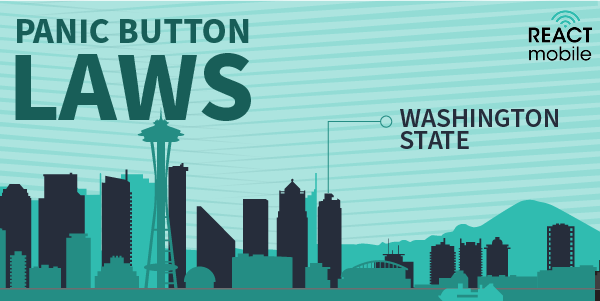What Washington Hoteliers Need to Know About Employee Safety Devices
by Brianna Harvey, on Jan 8, 2024 9:30:00 AM

In 2016, UNITE HERE Local 1 conducted a study that found that 49% of the housekeepers surveyed have had guest(s) expose themselves, flash them, or answer the door naked. These unsettling results, as well as detailed personal stories that workers shared, highlighted the dire need for change in the workplace.
Over the past few years, the hospitality industry has made significant strides towards change and creating a safer workplace. In 2018, the American Hotel & Lodging Association (AHLA) and major hotel brands announced the 5 Star Promise, which included a pledge to provide hotel employees across the U.S. with employee safety devices (ESDs) and a commitment to enhanced policies, trainings and resources that focused on enhancing hotel safety, including preventing and responding to sexual harassment and assault. Lawmakers also stepped in, passing legislation in numerous cities and states in support of increasing employee safety.
In 2020, with safety at the forefront of hoteliers' minds, the state of Washington passed state law RWC 49.60.515. This article will cover Washington's panic button implementation and what it has meant for hoteliers over the last few years.
For more compliance details for other cities and states in the United States, view our comprehensive Panic Button Legislation Guide for Hoteliers here.
Overview
The State of Washington passed law RWC 49.60.515, or "the panic button law" to protect workers in the hospitality and tourism industry. The first phase of the law went into effect on January 1, 2020. This first phase included hotels and motels with over 60 rooms. All other hotels and motels had to comply with the law and its rules and regulations by January 1, 2021.
Summary of Hotel Employer Responsibilities
This law requires hotels and motels to provide staff, especially staff that often find themselves working alone, with the resources and tools to feel safe and protect themselves in emergencies. By January 1, 2021, all hotel and motel employees should have personal panic buttons that are to be paid for and maintained by their employer.
Employer responsibilities include:
- Ensure all hotel and motel staff have approved and effective safety tools, such as panic buttons, also known as employee safety devices.
- Adopt a sexual harassment policy and provide training to employees, employee managers, and supervisors on preventing sexual assault in the workplace.
- Prevent sexual discrimination in the workplace.
- Provide a list of resources for the employees to utilize. The resources must include contact information of the equal employment opportunity commission, the Washington state human rights commission, and local advocacy groups focused on preventing sexual harassment and sexual assault.
What Features Should Your Panic Button Have?
With all of the panic button devices out there, it's critical to identify what features your employees need to feel safe. Each device is different and the best device for your hotel staff will depend on your unique needs. Regardless, there are a couple of features that your panic buttons should always have:
- A simple look and feel that makes the device wearable. Your staff should be able to easily and discreetly call for help.
- The ability to directly contact responders, such as a supervisor, manager, or hotel security. The device should instantly notify your designated responders that an employee is in need of help.
Protect Your Employees with React Mobile
React Mobile offers a variety of panic button devices that are not only easy to use but also packed with features to keep your employees safe. From real-time location tracking to seamless alert activation, our devices offer the ultimate peace of mind for both your staff and management.
Our team is dedicated to providing you with the support and resources needed to ensure the success of your panic button implementation. Book a free demo with us today and take the first step towards a safer workplace: https://www.reactmobile.com/demo-request.

